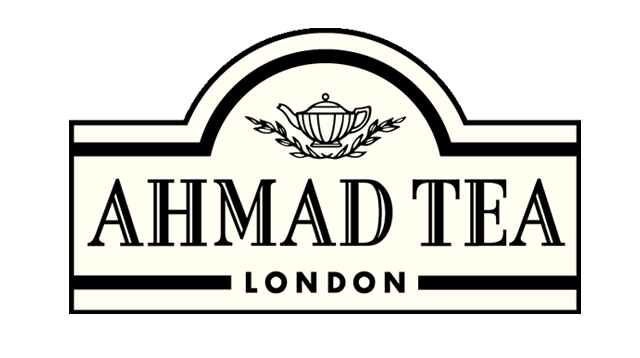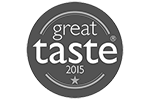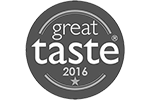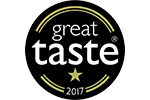-
Katalogas
-
- Limited Edition
- Galerie Du The
- Juodas klasikinis arbata
- Fruit black tea range
- Žalioji arbata
- Juodoji ir žalioji arbata be kofeino
- Žolelių ir vaisių arbata be kofeino
- Natural Benefits Herbal & Green Teas
- Arbatos rinkiniai ir dovanos
- Tea caddies
- Juoda laisva arbata
- Žalioji arbata laisvi
- Cold Brew šalta arbata
- Priedai
Ahmad Tea fabrikas. Jungtinė Karalystė.
Ahmad Tea - British brand of exceptional quality tea. Unlike the manufacturers of global tea brands, Ahmad Tea Ltd. is the oldest family tea company, where the quality of tea has been always put above the commercial ambitions since its foundation. All efforts of the owners and staff of Ahmad Tea Ltd. are focused on creation of magnificent tea blends. Ahmad Tea Ltd. is a permanent member of the British Tea Bureau and British Tea Association.
-
- Get acquainted - tea!
- Foto
- Vaizdo įrašų
- Kontaktai
- Pagrindinis
- Get acquainted - tea!
- Tea-testers
Tea-testers
Method of determination of the tea quality has been developed gradually, while expanding human knowledge of tea.
Organoleptic method has been the basic and almost the only way of determination of the tea qualities for a long time, i.e., testing of tea by feel, sight and taste. This is a very subjective method, which created a specific profession – tea tasters, people who have actually devoted their lives to the determination of tea qualities, and so are forced to accept the number of restrictions and strict discipline, not only in their professional life, but also in their daily life.
Only in this way the determination of such a subjective concept, as the taste is, may reach the highest objective level, so precise and delicate, that no devices can replace this human assessment.
Of course, to become a tea taster, it is necessary to have a special rare natural talent, as there is not a lot of people with a perfect sense of smell and taste, but there are even fewer people, who have preserved these qualities from their birth to adulthood.
There are only few tea tasters in each country. This is partly related to the fact that natural talents in this sphere are lost more often than in any other, as in childhood and middle age relatively few people know about the tea taster’s profession and even less people understand this profession and the qualities one should have to work as tea taster.
Often, even in mass media, tea tasters call themselves the tea degustators. This is absolutely wrong. Degustation is related only to tasting of food and drinks, including alcoholic drinks, mainly different wines, and offers tasting of a ready-to-eat food product in order to determine its flavor characteristics and differences from other products in a given category. In addition, taster has to eat at least a small part of the food product (excluding alcoholic drinks).
Tea tasting is much more complex and diverse process than degustation. It includes the determination of the quality of the tea leaves at all its production stages, tasting of dry tea by feel and appearance, taking into consideration a wide range of parameters (fragility, density, quality of harvesting, presence of tips, color), determination of aroma of dry tea, and, finally, tasting of tea infusion by such indicators as aroma, taste, color, brightness, strength, clarity, infusion intensity, degree of extraction.
Tea taster should also conduct researches with boiled tea leaves. Tea taster has the possibility to deliver a verdict of the tea quality, having received all the necessary information and having made evaluations on each position (25-30). That’s why the opinions of tea tasters are considered to be “objective”, despite the fact that it is their deeply personal opinions, based on unquestionable authority.
Opinion of tea taster is almost never affected by any subjective factors. This is a highly professional opinion of the specialist of the highest category.
Tea taster’s profession requires not only talent but also great knowledge and experience. It requires a lot of responsibility, as well as a thorough knowledge not only in such fields as biology, botany, biochemistry, geography, physics, but also the global market economy, especially tea trading economy.
Tea taster’s profession is related to the ability to keep in memory a whole tea flavors collection, as well as to know their origin, history and genealogy. A good tea taster knows the characteristics of almost all tea plantations in the main tea-producing countries.
And finally, tea taster’s profession requires great self-discipline, accuracy, exactness and moderation, as well as the ability to withstand the physical stress. Sometimes the world-class tea tasters have to perform up to 1000 tea tastings a week, not simply „ 1000 sips”, but to make multiple operations, associated to tastings, and to issue conclusions.
No wonder the tea taster’s profession, although is very prestigious, is included in the category of hard professions, as the miner or metallurgist. Naturally, this is a well-paid profession. Health of tea tasters (more precisely, their nasopharynx) in some English companies is insured for 1 million pounds. Running nose is an event that can inflict damage to the tea-producing company.
Tea taster’s profession requires a great self-sacrifice. Tea taster should not smoke, drink alcohol, has to refrain from and food with strongly pronounced aroma. So tea tasters never eat onions, garlic, pickled and smoked food, use very little salt, restrict the usage of spices and sweets.
Tea taster’s menu consists of neutral milk-vegetarian food, poultry, boiled river fish, young meat, some egg-flour products.
Tea taster is not allowed to use perfume, cologne, ie, odorous substances, flavored toothpaste, perfumed toilet soap. He should wash his hands just with tea soap. Even more, his underwear, clothes, shoes should not be affected by newest synthetic detergents, to prevent affecting his evaluations by any foreign smells.
Of course, tea taster protects himself from getting cold. His work space is clean, large and sunny room, which is regularly ventilated. Tea taster should be also guided by the above-mentioned rules in his relations with other people. This means, for example, that he should not have friends, who are smoking, using perfume, etc.
While tasting the tea infusion, tea taster does not drink tea, but only gargles the oral cavity, and then tries to determine the flavor, grinding the drops of tea by the tongue against the palate.
Also in the process of determination of aroma, he just smells an empty cup, which was dabbled with tea, or carefully smells gently boiled leaves, but not hot, from which the tea is poured from. In other words, in all cases, tea taster protects his olfactory region, which is able to provide the detailed information of the tea aroma by the qualities, barely perceptible by the conventional consumer.
Uniqueness of this profession, and even more - a rarity of apparition and long-term conservation of the qualities of good tea make the tea industry and its servicing science look for objective methods of determination of the tea quality.
Today, biochemical, chemical, gas analysis, fluorescent evaluations and chromatography are widely used to determine some parameters of tea qualities, mainly at the various stages of its production, when it is necessary to correct the mode of any technological operation and it is important to determine in the tea leaf the quality for a concrete operation.
However, all these methods of objective evaluations cannot give a clear idea of the tea flavor and aroma, and thecomposition of its qualitative indicators. Therefore, they cannot be a base for the general evaluation of tea qualities, which is the main indicator of the determination of the tea price. This responsible work is entrusted to the person – tea taster, whose alive, spontaneous impression is the most objective and precise than the results of the analysis.
In this context the organoleptic method is, apparently, irreplaceable, and in spite of technical progress, will not lose its significance until people are enjoying tea.







